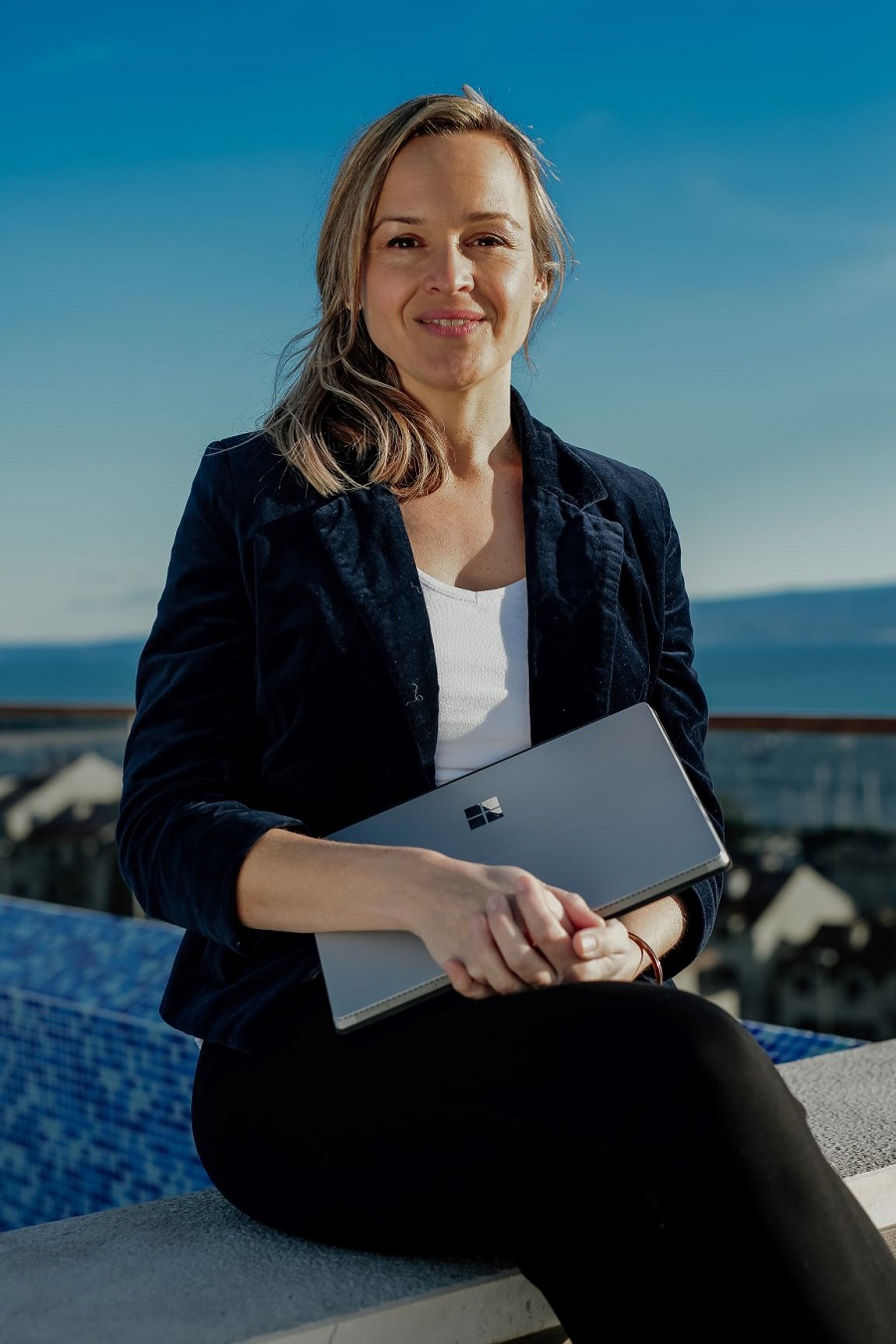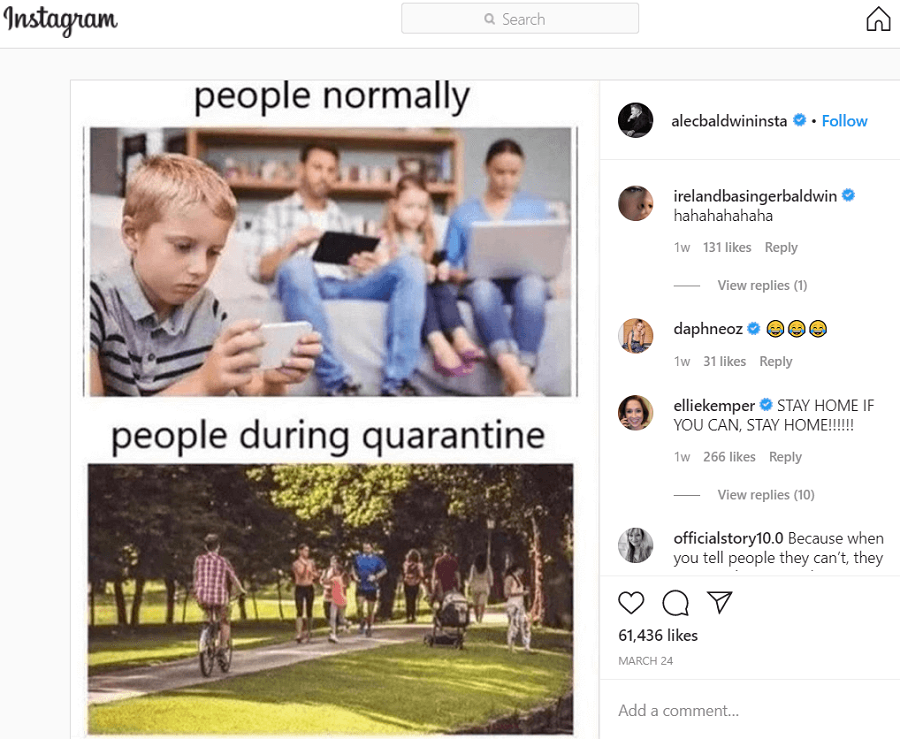Split Digital Nomads Increasing Daily: ‘It’s Great Here, We Feel Safe’
May 12, 2021 - Split digital nomads are increasing daily thanks to the coastal city's quality offer, international community, and safety.
They come from all over the world, live with complete freedom of movement, work from home, a cafe, or a distant island. When choosing a location, the most important condition is a fast and quality internet connection, hospitality, and security. They are digital nomads, highly qualified foreigners, mostly IT experts, who are increasingly discovering Croatia as a unique piece of paradise on Earth, and Split seems ideal for their needs, reports Slobodna Dalmacija.
Thanks to amendments to the Aliens Act, Croatia has introduced the concept of digital nomads since the beginning of this year, who now have preferential tax treatment, which facilitates their decision to choose Croatia as their place of residence and work.
They can stay in Croatia for up to a year. The introduction of digital visas for digital nomads was initiated by entrepreneur Jan de Jong, a Dutchman who lives and works in Split. More and more people work remotely, and he sees this as an opportunity for the Croatian economy.
He is the co-founder of the Croatian Digital Nomads Association (DNA) with Tanja Polegubić, a returnee from Australia who has also been living and working in Split for several years. The association's main goals are to provide general information to digital nomads about life and work in Croatia, educate, connect digital nomads with service providers, and present their problems to the authorities.
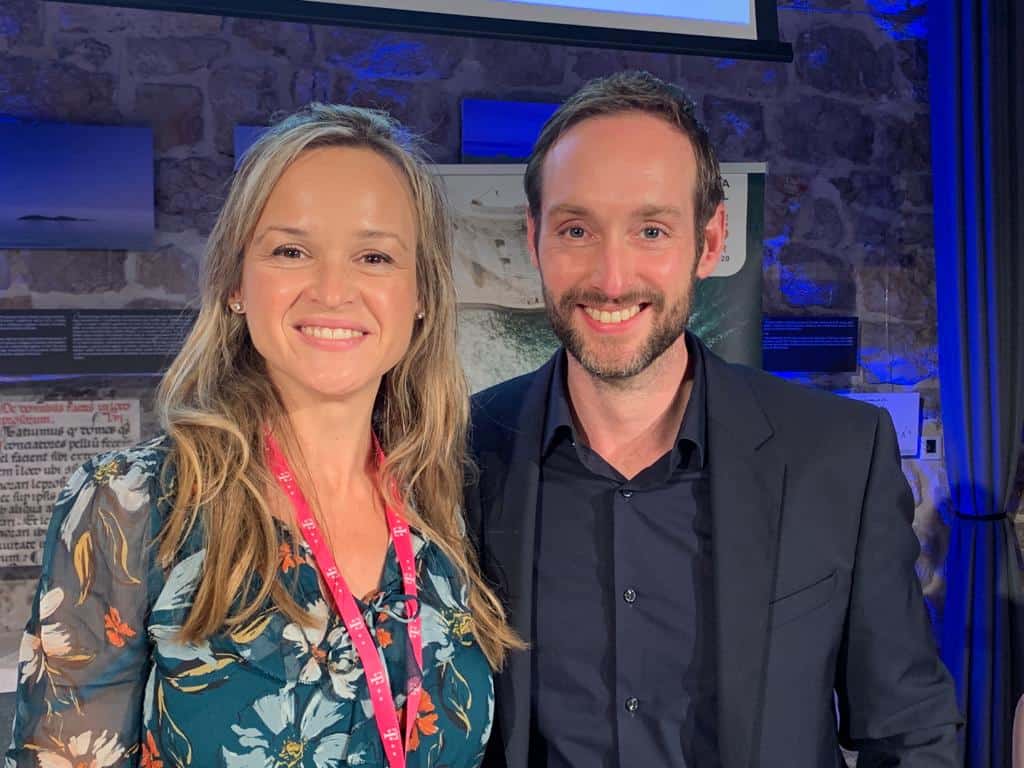
"Split is already a natural choice for many digital nomads, just like other cities on the coast. But that could change if some changes don’t happen, that is, if the city doesn’t open up to digital nomads. When I was looking for a coworking space to work in 2015, I searched the entire Adriatic coast.
I spent a lot of time in Zadar, Trogir, but Split attracted me especially. There is something in it. Everything suits me here: it is neither too big nor too small. There are a lot of quality restaurants and bars, and there is a big international community. At the same time, the locals speak English well," says Tanja, owner of the company "Saltwater," an aid to digital nomads as it provides everything one may need, from finding a workspace, connecting people, organizing conferences, various events, conferences and more, and is a member of the Business Incubator of the Croatian Chamber of Commerce of the Split County Chamber.
Tanja said that digital nomads in Split work from home, i.e., from rented apartments, hostels, hotels, or coworking spaces in several Split locations.
"This has been an interesting year, and I have befriended many people who have stayed in the city. Most like to live in a circle around the city center and in the Palace. Varoš, Bačvice, Meje are popular with them ... in fact, those neighborhoods from where they can reach the city center on foot in a short time. They mostly stay in private apartments and less in hotels because they are too expensive for them.
But the problem is the short rent they get from private renters who, of course, find it more cost-effective to give the apartment to a typical tourist rental that is expensive for nomads. Even the off-season offer of social life, which weakens after the summer, does not favor the arrival of nomads for whom the social aspect is important, the offer of the destination where they stay, the diversity of content around them because they want to meet new places and people. True, there was a pandemic that disrupted everything, but we need to adapt.
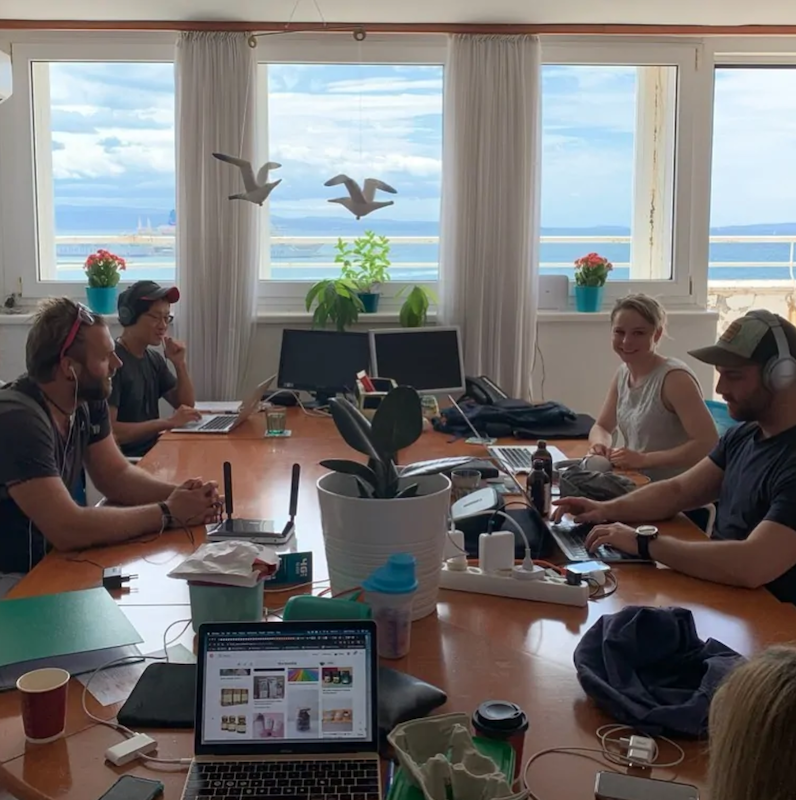
On the other hand, this environment is quite interesting for them because of their hospitality and security, especially for families with children, the health system has a good reputation, the climate is mild," says Tanja, who receives many inquiries about Croatian cities from digital nomads. The conditions they need to meet are proof of constant income, proof that they are digital nomads, that is, that they are not coming to Croatia to sell something but to do their job from this destination.
To help foreigners come to Croatia, a DNA association was established.
"The goal is to support digital nomads - as well as local businesses. The association deals with information, education, community networking, certification, and representation of digital nomads and various businesses before various Croatian institutions. Ways are being devised in which digital nomads can contribute to society, for example, around animal welfare or environmental protection.
It also focuses on tenancy topics because we know that many tenants and students are evicted from rented apartments when the tourist season begins. We will organize "certified" service providers so that digital nomads know that they will be protected," says Tanja Polegubić, believing that Split and Croatia have an excellent chance of becoming one of the favorite destinations of digital nomads if they open their hearts.
While Dubrovnik has gone the furthest in this regard, Split is also turning towards such modern trends. For example, the Split hotel "Marvie" offers affordable packages for long-term stays. As much as a 50 percent discount for stays of 28 days or longer, even in the middle of the summer season. Guests have at their disposal a separate co-working space with high-speed internet of 200 Mbps, a projector with a screen and a flipchart, which can simultaneously fit 7 people, ergonomic chairs, and everything that makes the stay more comfortable.
Namely, teleworking is a growing trend with exceptional economic potential, which is supported by predictions that by 2022 there will be more than 1.87 billion workers in the world whose work will take place online regardless of location. Therefore, "Marvie" is the first Croatian hotel to create an offer fully adapted to the needs of teleworkers.
Jan de Jong points out that digital nomads are an opportunity that we must not ignore. The main advantage for Croatia is year-round tourism and the arrival of highly paid workers who would not take jobs and spend their salaries in Croatia.
"Digital nomads and marketing are important for Croatia because they share their experiences, videos, and photos with their families, but also on social networks, which is free promotion. Since the introduction of visas, 33 of them have applied, and four have been approved, while the rest are being considered," he said.
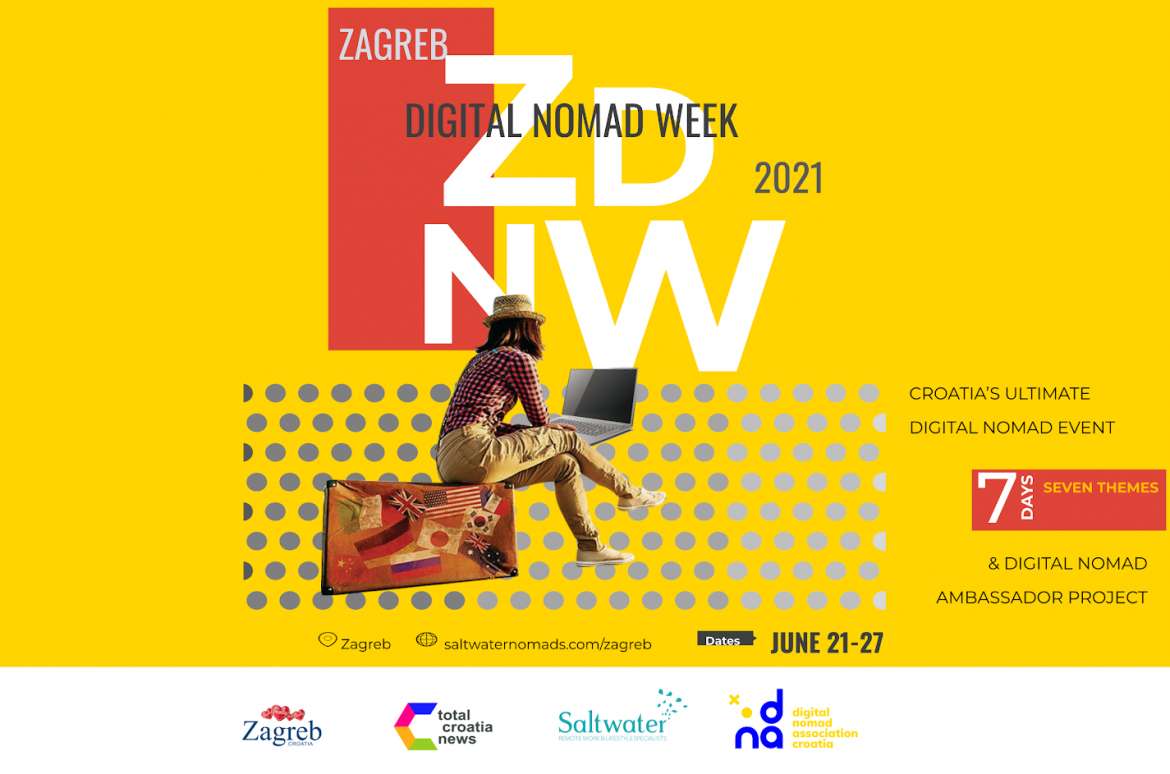
Learn more about Zagreb Digital Nomad Week 2021 Announced by Saltwater Nomads/Zagreb Tourist Board HERE.
Learn more about the Dubrovnik Digital Nomads-in-Residence program
Saltwater Nomads' Tanja Polegubic on Dubrovnik Digital Nomad-in-Residence Programme
Dubrovnik Mayor Mato Frankovic on Digital Nomads, US Flights, 2021 Season
For the latest on digital nomads in Croatia, follow the dedicated TCN section.
Saltwater Nomads' Tanja Polegubic on Dubrovnik Digital Nomad-in-Residence Programme
March 18, 2021 - There are less than 2 weeks to go until applications for the Dubrovnik Digital Nomad-in-Residence (DN-I-R) competition closes. An in-depth interview with competition creator, Tanja Polegubic of Saltwater Nomads.
The pandemic has been a strange time for all of us, but it has also brought new directions and opportunities. I would never have expected to have been involved in the organisation of Croatia's first-ever digital nomad conference, Dubrovnik for Digital Nomads.
2020 was a great year for the digital nomad sector in Croatia, culminating of course in the introduction of the digital nomad permit on January 1. Now nomads meeting the criteria are able to live for one year in Croatia and work remotely. TCN teamed up with one of the early pioneers in these fairly uncharted waters, Saltwater Nomads. Dubrovnik was the first destination to see the value in what we were offering, we have been working with them ever since.
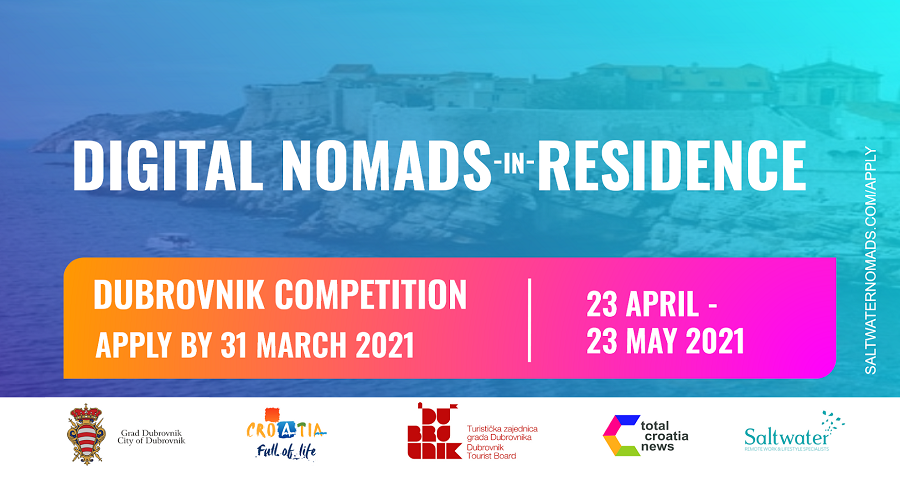
Saltwater CEO, Tanja Polegubic, designed and delivered the October conference, and she is also behind the Dubrovnik Digital Nomad-in-Residence competition, a unique concept which has attracted considerable international attention. And some VERY strong early applications.
There has also been some confusion about the competition and what we are trying to achieve, and I thought that the best way to explain more would be to get young Tanja to explain in more depth.
(Photo by Damira Kalajzic)
It is being billed as the world's first digital nomad-in-residence competition, in partnership with the city and tourist board of Dubrovnik. Can you briefly explain what that means exactly, and what you are trying to achieve?
The notion of a scholar- or artist-in-residence is a globally recognised concept. These residencies are models of collaboration; they bring diversity to an institution, and foster an environment for research, knowledge sharing - and in this case, the goal will be implementation.
The selected DN-I-Rs will participate in design thinking workshops and present their findings on shaping a Digital Nomad Friendly city.
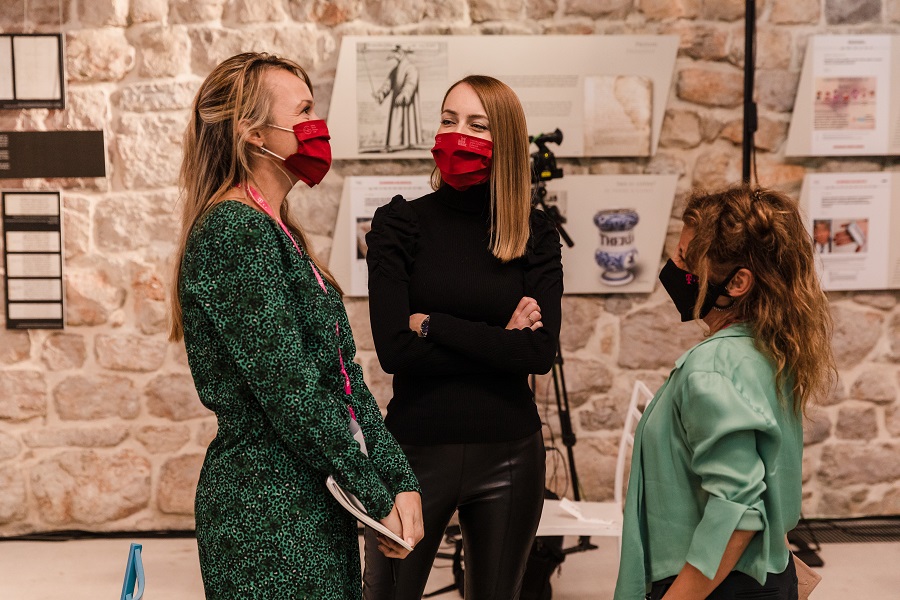
The first goal in working with Dubrovnik was to build awareness about the city and what it can offer for digital nomads, as it was not previously known for this - but was certainly infamous! This is in motion, with much international media coverage about Croatia’s most famous city. Like most places, it is undergoing a transformation - everyone knows what Dubrovnik looked like before. Digital nomads are only one aspect of this. We are using a co-creation model to look at ways digital nomads fit this new direction.
You are offering 10 lucky winners the chance to spend 4 weeks as guests of Dubrovnikworking with the city to develop their strategy to better serve digital nomads. Who is eligible to apply, and what kind of applicants are you looking for ideally?
Anyone who can be a digital nomad for a month can apply. This might be first-timers, who are perhaps working from home right now - or a seasoned digital nomad travelling the world.
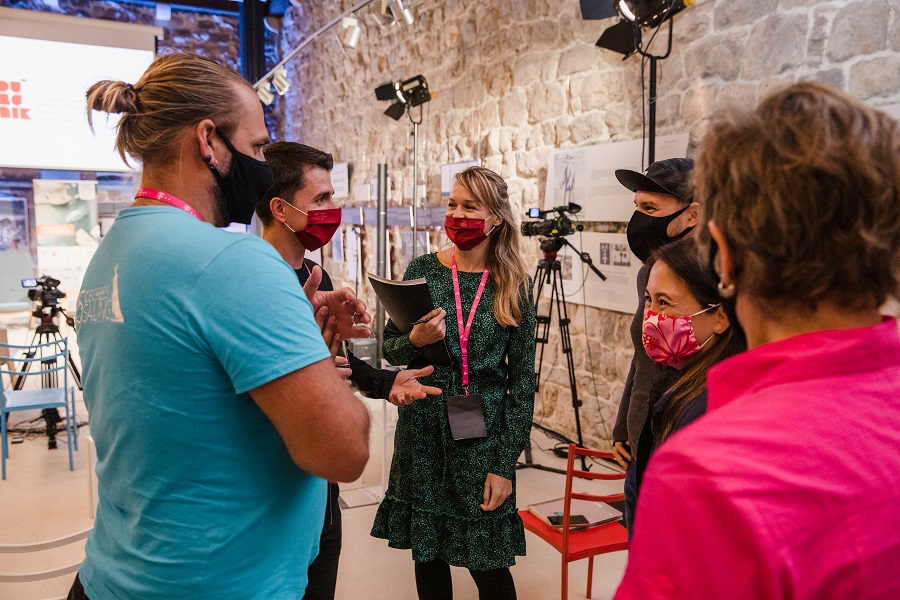
We are looking for applicants who will bring value to the program. This isn’t a free ride - even though you’ll go on some amazing local area tours, free! We want to see evidence you will commit and can make a contribution. We’re looking for diversity in age and professions. We also need to know what skills you will bring, and we have answers such as “community building, playing the ukulele, history knowledge” so it is really about what an individual brings and looking at how that will fit in a group. We don’t expect people to have experience doing this before,or1 million followers
If you are asking for a hot tip - I can only say, ensure it reflects your personality - we want to see the real you. Also, do some research on Dubrovnik to inform the reason WHY you are applying.
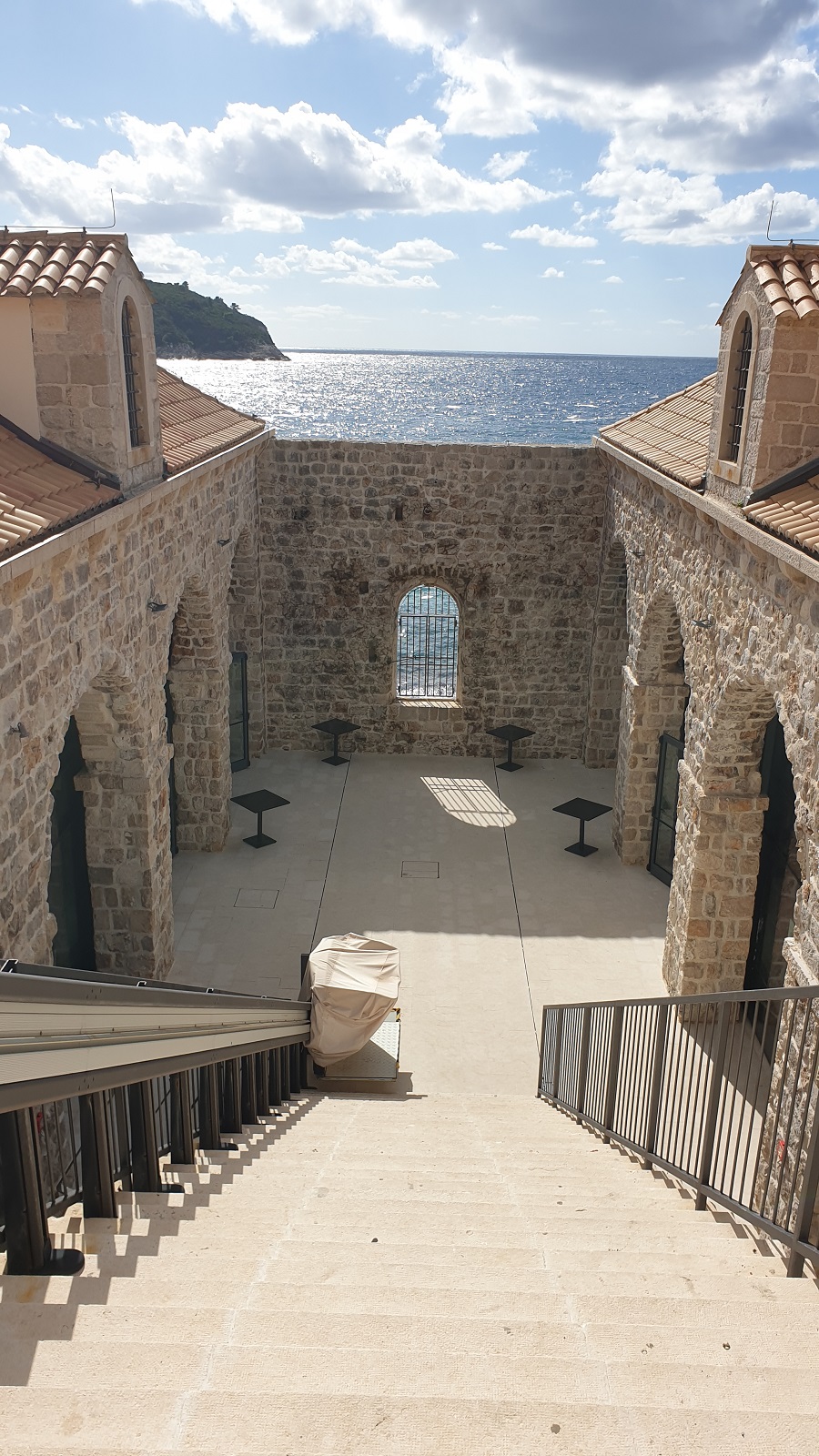
(The Lazareti, the original quarantine premises for the Dubrovnik Republic, which is where the first digital nomad conference in Croatia was held)
The application period is already open and runs until March 31. How has the response been so far?
The applications we’ve received so far are diverse and strong. As it’s the first time it has been done, this will be the benchmark. There are also COVID19 factors to consider. Not many people are sure of their ability to travel right now. On that note - COVID19 safety is our high priority and we are operating within the prescribed guidelines and in constant consultation with the City about this.
We are confident a high-quality group will emerge.
There will be other opportunities to be involved, so anyone who applies will get this information, first.
Your company, Saltwater Nomads, is providing both the concept and the delivery of the Dubrovnik Nomads-in-Residence programme. Why Dubrovnik?
First Movers
Dubrovnik was the first to recognise and follow through on the idea to welcome digital nomads to an external audience.
Sustainability
Dubrovnik was, according to some reports, the second most overcrowded city in the world. I watched on during the war. I visited for the first time in 2001 as a volunteer at Trsteno Arboretum. I considered it as a destination when I first began researching opening a cowork in 2015. Its history is … epic. It is Croatia’s best-known city, so when it prospers, this can only benefit every other city in Croatia - nomads travel. So, from bringing wider benefits to Croatia, to delivering a more sustainable approach - the why is clear to me.
Action-oriented
Getting things done in Dalmatia can be difficult, drawn out and tiring. There’s a lot of skills atrophy. Complaints, with no action. A brain drain. Anyone with a more open-minded and longterm vision, in this case a city - is where energies should go right now. Local council and institutional support is key.
Dubrovnik has demonstrated it “gets it”, and I forgot for a while what that looked like. I am also pleased to say, other cities are taking progressive steps, and were perhaps limited due to many factors - so I am confident Dubrovnik is just the start.
Keep an eye out for new projects in Zagreb, Bačvice beach Split and an island.
You are known as one of the pioneers of the remote work initiative in Croatia, opening your first co-working space back in 2017, and there has been a lot of buzz regarding the Croatian digital nomad 'visa', or permit. How has the scene changed in Croatia since you started?
I started researching opening a coworking space here in 2015. My father became ill, and ultimately passed away, so I did not come until 2017. Prior to Covid-19, it was a tough run on the coast. You’re too expensive in Summer, and there’s not much to offer in Winter, so no one knows about you and goes to Bali instead. Also, no one knew what I was doing - but my first “walk-in” the first month I opened was from Google. I wasn’t even ready yet, but I took this as a sign I was onto something. In that time, I branched out to do a range of project work, and met a lot of people and discovered the kind of person I would want to do business with - having had no experience in business - and really learning a lot. I am still learning.
The pandemic (and as a result, working from home) has changed everything. Croatia’s new digital nomad permit has turned it into turbo mode. There are more online services due to COVID19. These are progressive steps to making Croatia ideal for digital nomads.
The thing I most expect to change, is a rise in people with Croatian origins also considering Croatia as their office. I already see it, in fact.
What are the biggest challenges for Croatia and its tourism providers in order that they fully take advantage of this opportunity? I am struck, for example, by high levels of enthusiasm to offer 'digital nomad tourism' without necessarily a clear understanding of what that entails.
This is a long-term journey arising out of the pandemic. Digital nomads are just a part of it. While it is great to see enthusiasm, a more informed approach and diversification would be wise. Can digital nomads be one form of moving toward this? I believe so.
I am reading and talking to some of the more visionary thinkers to offer something other than tourism. It is my belief that a digital nomad audience can deliver capacity-building opportunities regular tourism cannot, for example, by knowledge sharing and showing “you can work from anywhere” helps the younger generation see they have options. Also, Croatia is a place which can be a base for different sectors. Again, to touch on Croatians outside Croatia - if the rest of the world is coming here to work, why can’t you - but in this case, actually invest or run a business, which a non-EU national on a digital nomad permit currently cannot.
The biggest challenge, currently, is education. Providers need to know why and how a digital nomad is different to a regular tourist.
For example, this includes longer stays, a desire for more immersion in community and feeling at home.
Longer stays are the best example - it is hard for someone who has previously made 8,000 euro in 1 month to now offer the same apartment for 800 euro. Thus, landlords must decide if they will offer monthly bookings vs nightly. This is currently, and I expect will continue to be, Croatia’s greatest challenge; it impacts a decision on where to stay and will be a deterrent if prices and convenience are not available year-round. Some incentives for more properties to offer this is one way which can help.
Also, knowing what to offer.
A lot of people are working from home - the kitchen table is not always suitable. Nor is slow or unreliable internet. People are travelling with or adopting pets. They are self-catering more. They require everyday household items - such as more coathangers. It really can be that simple. You need to consider utilities pricing, and then things like whether you are registering a nomad as a tourist, or will have a lease - as the taxes differ. There’s a lot of new information and adjustments to be made. Some are quick fixes, some need more investment.
These are areas which can be addressed, and I am confident Croatia offers everything - Lifestyle being number 1.
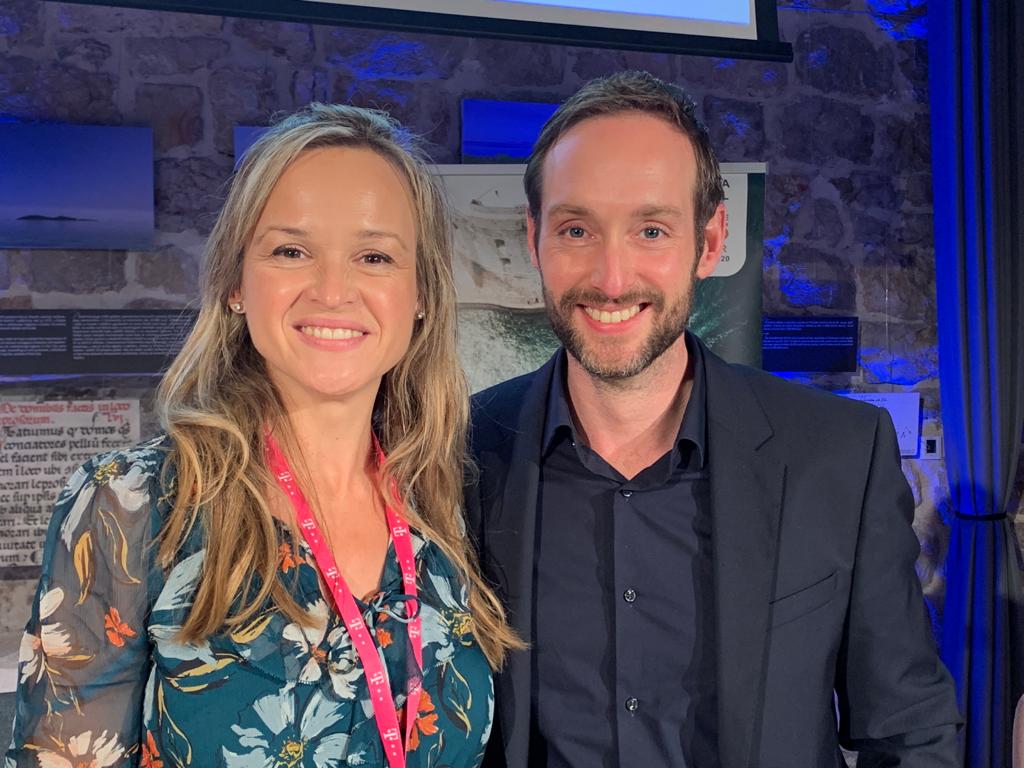
(With Digital Nomad Association co-founder, Jan de Jong)
You are also a co-founder of the Digital Nomad Association in Croatia. Tell us a little about that.
Working in a tough town with a tough business to make viable has meant I’ve encountered almost every problem imaginable for digital nomads. I enter the DNA bringing these insights, as I’ve directly been impacted by the same issues a digital nomad, or business serving digital nomads, may face.
Being part of DNA Croatia with Jan and Karmela is one of the greatest things to come out of last year. I learn every day from the different skills my colleagues have, and we each bring a different perspective.
The association is about strength in numbers. Our current focus is heavily administrative, and the next focus is to drive membership, and collectively work toward meeting our five goals which are: representation (eg. to government bodies), community building, education, information and certification (eg. ‘digital nomad friendly’ properties). I also believe we were the first in the world with such an association. We really saw the need to get things right from the start of the permit being launched. How? We bring a range of collective expertise.
There’s entrepreneurial, community work and NGO experience in our founding team. Every day, we hear from and factor in how people in Croatia or digital nomads want to be served. Our aim is to bring all this together.
Each one of us is passionate, has a strong network - and is actively contributing to make Croatia realise its potential. Even in the face of occasional criticism - but from what I see, the ones who criticise are quick to give an opinion, but haven’t done anything to change things.
And finally, what are you hoping the end results will be of the programme, and how will you measure its success?
The expectations are high. Success is a happy City and Tourist Board, number one. Next are the participants. We’re promising a once-in-a-lifetime experience, so it’s a big task.
We’re confident the workshops will be engaging and involve members of the community in a co-creation model. For example, the tourist council is a knowledgeable base of experts to engage, through to tour guides, historians, you name it. The structure of the program will determine who is identified - the first task is to see how the digital nomads experience the City themselves. It then calls for the involvement of relevant local stakeholders. This is built into the co-creation model. Some locals have already reached out, which is wonderful.
Enjoyment
The tour program made my jaw drop (I don’t know how anyone will get any of their regular work done with all there is to do)! The participants are there to enjoy being in Dubrovnik for a month as special guests of the City and Tourist board. It has to be a positive experience, which they will promote, with authenticity.
Sustainability
It is a thrown-around term. Still, our efforts are intended for there to be ongoing benefits beyond the four weeks of the DN-I-R program. Will our findings and recommendations be able to be implemented? Will they benefit incoming digital nomads and locals? Sustainability equals success.
Local buy-in
The City and Tourist Board supports this and recognises its value. During the program, which uses a co-creation model, we continue to look to the City and Tourist Board for guidance on who and how to engage with the community they serve. When a number of new products and services emerge - as a result of this program and other efforts, then it’s a win/win.
Beyond Dubrovnik’s walls
Success is other locations - in the region or beyond, adopting a similar or modified approach - i.e. making the effort to do something to suit a remote working audience. It doesn’t have to be so intensive, but the roadmap is expected to have some universal ‘tweaks’, but of course there will be location-specific things to implement.
Numbers
The moonshot is to be profiled as a best-practice example for cities adopting new strategies to cater to remote workers and demonstrate Croatia has some of the best places to live by more digital nomads coming. We are slow when you compare us to other established Mediterranean countries - so we are making up for it. For a tourist-reliant city to make such a move, this has already drawn the attention of urban planning publications - so already, the world is watching. Success is when they start coming to live and work here.
There is still time to apply, with applications accepted until March 31. Learn more about the competition rules and apply via the official Saltwater entry form.
For more news and features about digital nomads in Croatia, follow the dedicated TCN section.
Bacvice Not Bali: New Saltwater Digital Nomad Beach Heaven in Split
August 19, 2020 - Bacvice not Bali: meet the new beachfront digital nomad chill zone on Split's most famous beach from Saltwater.
One of the (fairly obvious) secrets to a happy life in Croatia is to surround yourself with positive and creative people. While many sit around in cafes and complain about life, there are many creative, positive people existing in their own bubbles around the country, quietly finding ways around the bureaucracy and other stumbling blocks that make life in The Beautiful Croatia a unique set of challenges.
I knew very little about co-working spaces when I first met Tanja Polegubic in Split about 18 months ago, but I was very impressed by her vision, determination, and creative thinking to get around the various barriers which exist in doing business in Croatia. While more and more people are now talking about the digital nomad opportunity in Croatia, Tanja has put a lot of thought into both the opportunities and challenges, as you can read in 10 Ways Croatia Will Be At The Forefront of Countries with a Digital Nomad Visa (DNV).
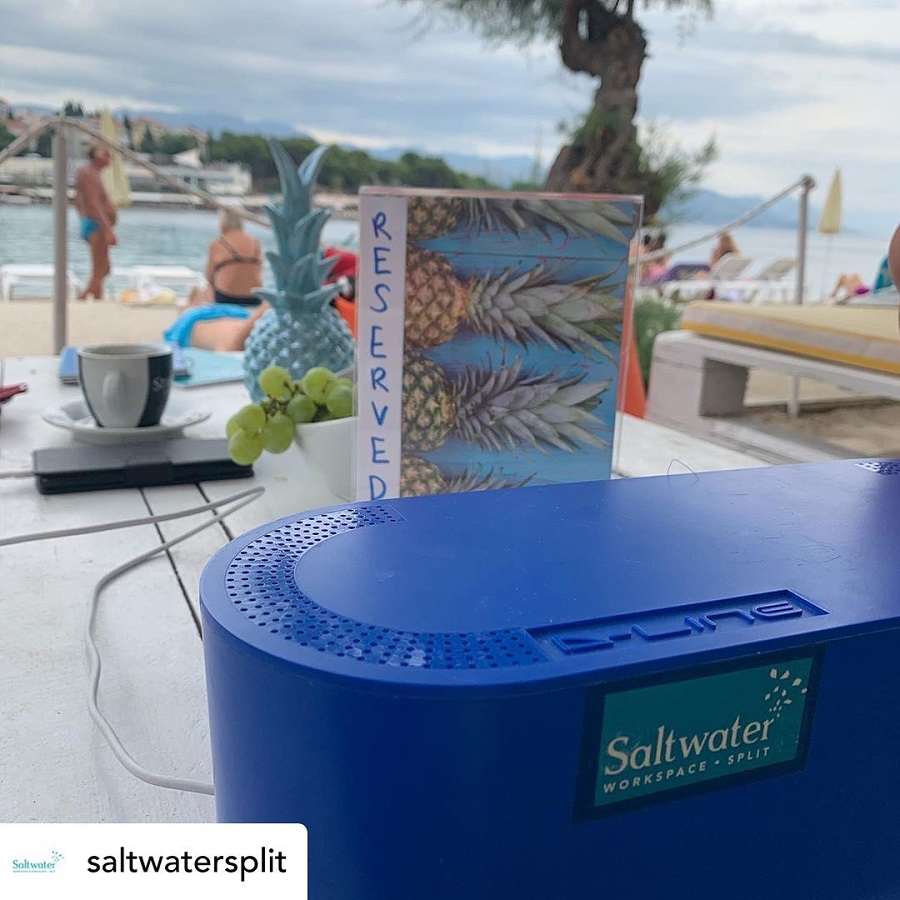
Tanja was one of the pioneers of co-working spaces in Split, with her centrally-located Saltwater office just off the main Split riva by Diocletian's Palace, but she has been working on something even cooler these past few weeks to offer visiting nomads the ultimate chill zone at Bacvice not Bali. A delightful remote worker space at the edge of Split's most famous beach, with its own dedicated space within a very cool bar. I was there a month ago and absolutely loved it, and I am thrilled that Tanja has finally brought the project to fruition - it is now open for business.
How better to introduce it than in the words Tanja posted on Facebook announcing its opening:
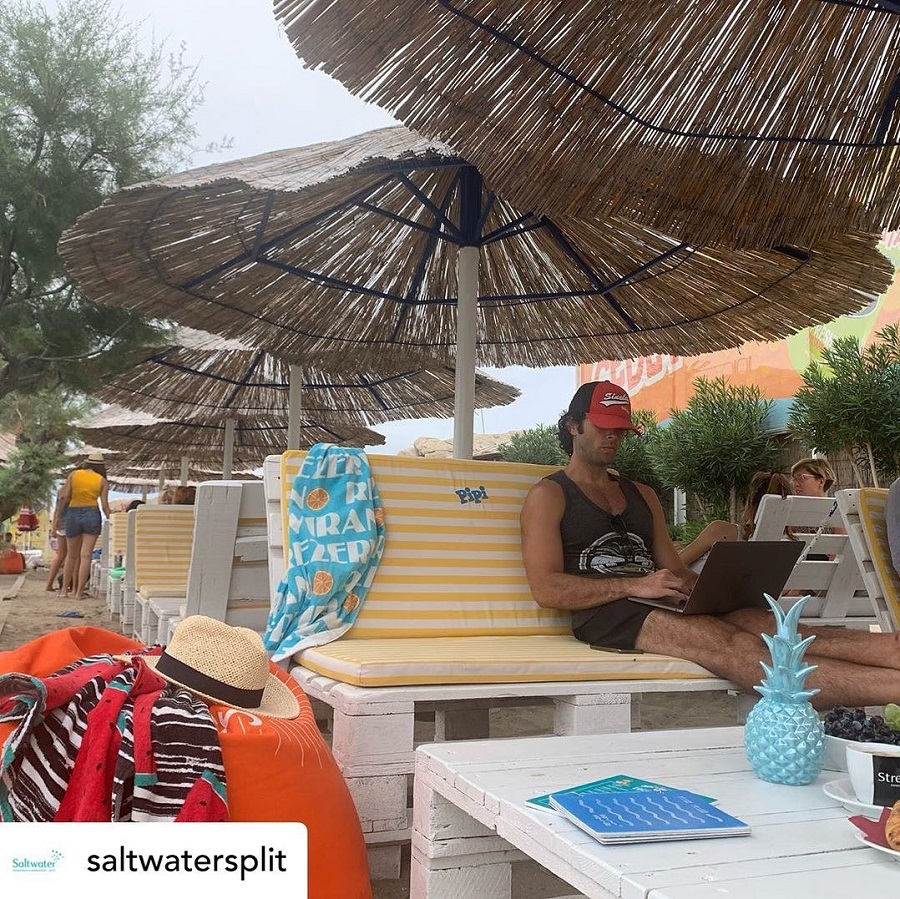
With great #joy - the new part of the Saltwater Workspace Split business is #nowopen. Hoo-frikking-Ray! And #shoutout to my mum Anka Polegubic cause she's awesome! ![]() and pok. Šerif
and pok. Šerif ![]()
It has taken ... weeks! Painting. Drilling. Hardware store-ing. Wifi hacks. Gemišt and gin tastings. Etc.
Thank you to @kavala_beach_bar / @amandaluisebarnes for the setup. And everyone else who has supported this idea and is working here this week.... more important, those who #wishyouwerehere ![]()
![]()
![]()
![]()
![]()
![]()
![]()
![]() The #BobMarley is playing.... the #gemišt is flowing ... and The water
The #BobMarley is playing.... the #gemišt is flowing ... and The water ![]() is fine.
is fine.![]()
#repost @saltwatersplit Bačvice Beach ... The new Bali (well, when you can’t get to Bali).
#todaysoffice #saltwaterworkspace #croatiadigitalnomads
Bookings essential. #staysalty ![]()
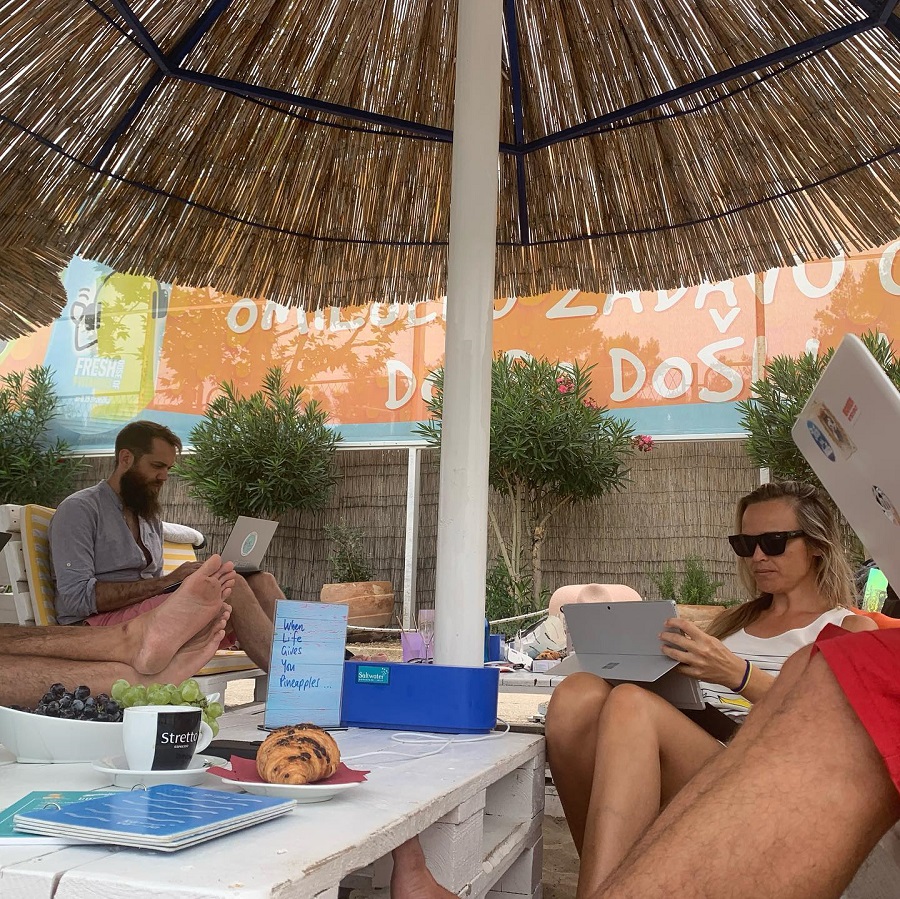
TIME: 9am to 8pm. 7 days / summer only.
PRICE: 150 HRK minimum spend at the cafe/bar. (Tough life!)
Free for Saltwater Workspace Split members.
BOOKINGS: Whatsapp Saltwater +385913308000 or ask for Amanda at the bar (after 12 midday).
Refreshing detox watermelon mint ![]()
![]() smoothies for 35 HRK and Brooklyn Bagel Co. Bagels
smoothies for 35 HRK and Brooklyn Bagel Co. Bagels ![]() with Schmear for ~ 20 HRK and up
with Schmear for ~ 20 HRK and up
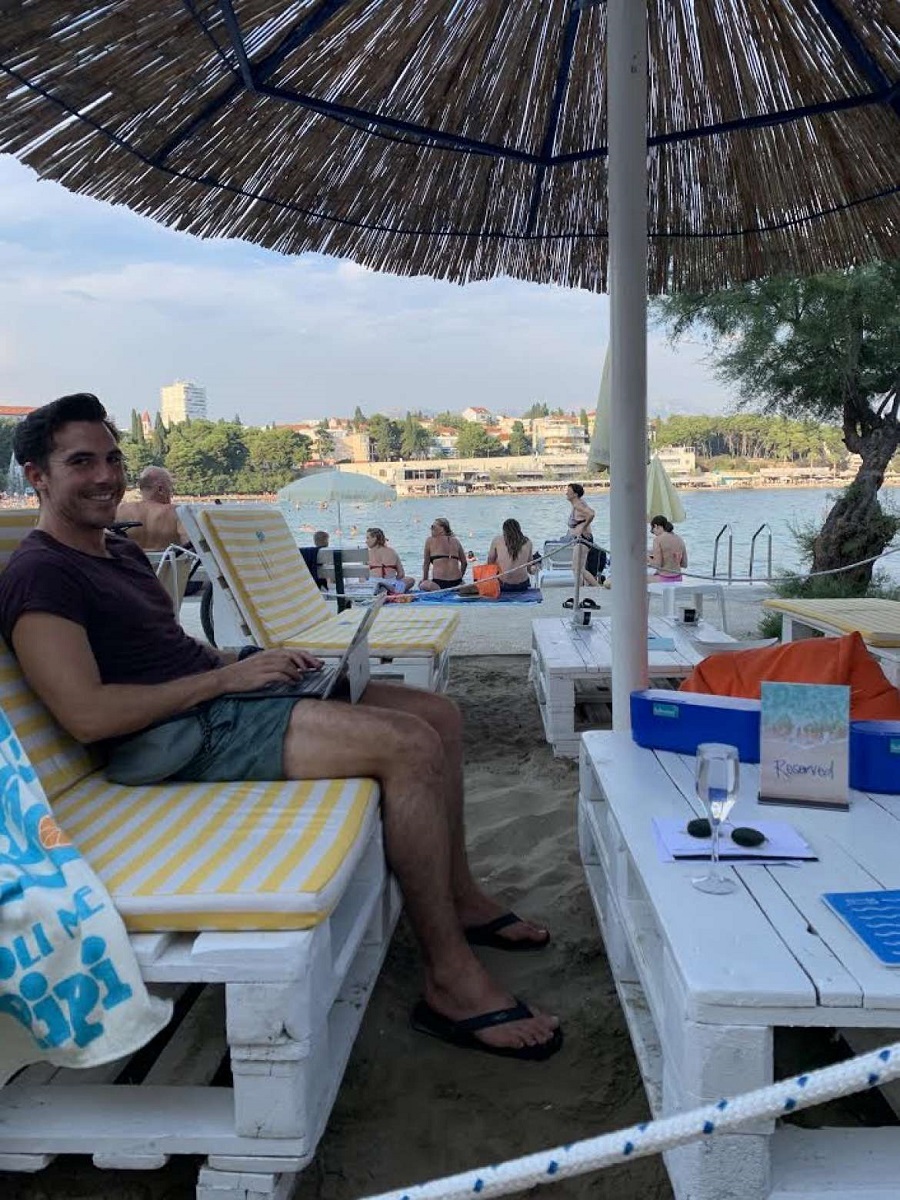
A great addition to the remote working scene in Dalmatia, and the opening comes at a time when there is a concerted push to introduce a digital nomad visa for Croatia, an initiative which was yesterday supported by the Ministry of the Interior. Read more in Croatian Bureaucracy 2.0: Progress with the Digital Nomad Visa.
For the latest travel info, bookmark our main travel info article, which is updated daily.
Read the Croatian Travel Update in your language - now available in 24 languages
Foreigners Self-Isolating in Croatia: Do You Feel Safer? Tanja from Australia in Vrana
April 3, 2020 - Do foreigners in Croatia feel more or less safe sitting out COVID-19 here than in their home country, and what are their experiences? A new series on TCN, with Tanja Polegubic from Australia in Vrana as our 20th contributor.
Oxford University recently published some research on government responses to coronavirus which showed that Croatia currently has the strictest measures in the world. While inconvenient, this is a good thing in terms of reducing the spread of the virus, and I am certainly not alone in my admiration of the official Croatian handling of this crisis in recent weeks, both in terms of action and communication.
But what do other expats here think? And how does it compare with the response in their home country? Would they rather sit this one out here or there? In the first of a new series on TCN, we will be featuring expats from all over the world to see what their views are on life in corona Croatia rather than back home. So far we have heard from expats in Croatia from Romania, USA, Ireland, UK, Mexico, Argentina, Spain, Singapore, Holland, Canada, India, Hong Kong and Germany. Next up, Tanja Polegubic from Australia in Vrana. As an Aussie, I wondered how much toilet paper she had stockpiled as an additional question. Her answer was superb, and had she written it by hand on some toilet paper, it would have taken up most of a whole dunny roll. You can read it here.
If you would like to contribute to this series, full details are below. Now, over to Tanja.
1. Firstly, how are you? Are you alone/with someone? Tell us a little about your situation and sanity levels.
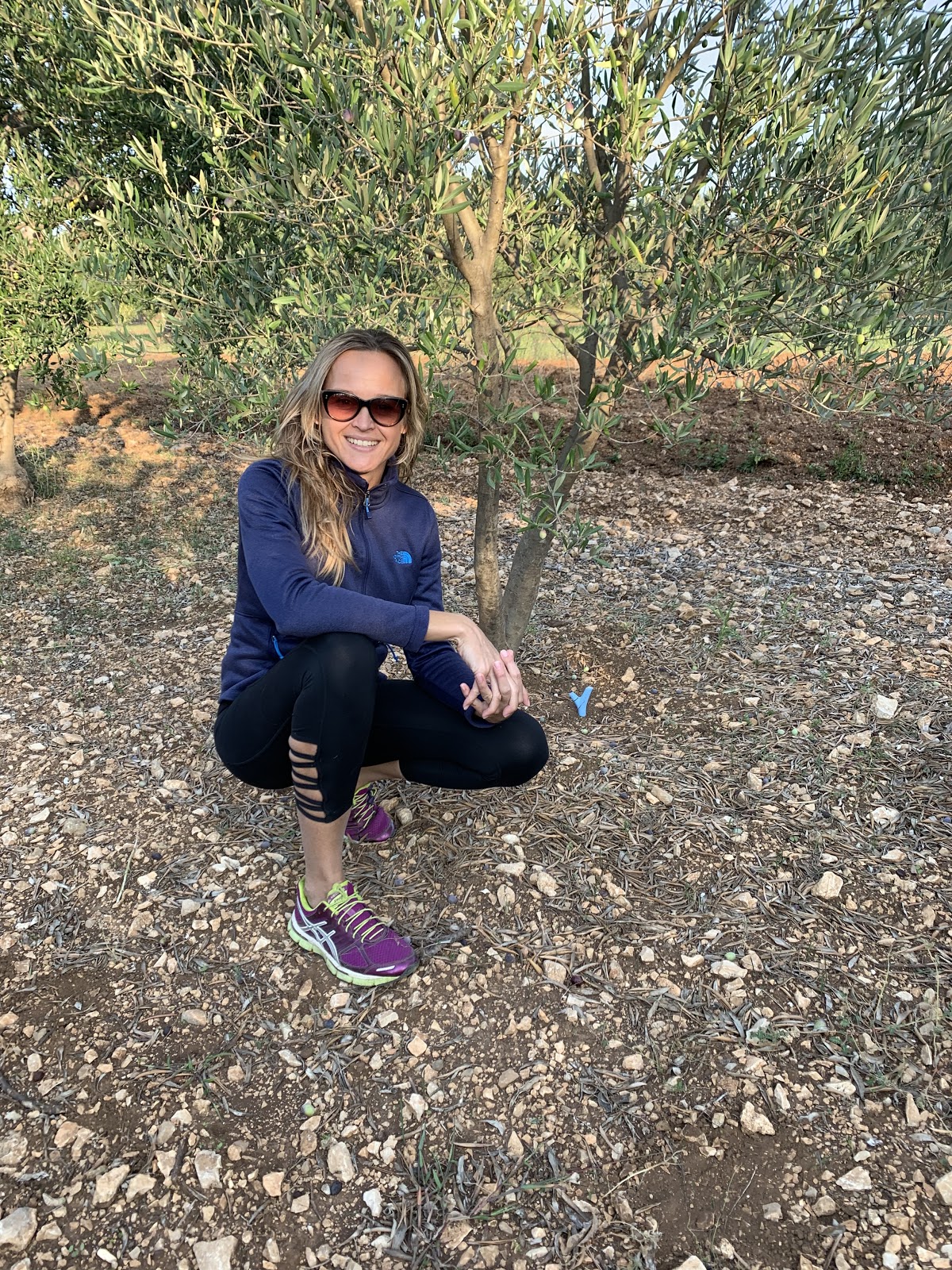
I’m keeping well. I’m on my own, in Vrana, a farming village in Dalmatia. Before this I was in Split but our cowork space is now closed. And my closest neighbours - who have kept the tobacco industry afloat for decades - ramped up their habit so I got smoked outta there.
I’m working on a new project and ongoing Australian outsourcing business, which we expect will surge as remote work just went mainstream.
My situation:
Like many people in my circle, I’m making the most of this time. Forwarding memes. Reading books on my wishlist. Writing. Connecting over voice or video calls. Working on personal projects I’ve had in the pipeline. It’s been a blend of productivity and stillness.
I video call my mum who shows me the exceptional lettuce in her back garden. She has to stay home as I’ve banned her from leaving - like many adult children I know around the world. My only routine is on Sundays, where we hold virtual cocktails between London, Spruce Pine North Carolina, Split, Vrana, Trolokve….
Home Office:
One of the things that’s different - I’m not moving around so much, so I pimped the ironing board into a standing desk. [See Photo].
There are days I’m on the screen a hell of a lot. In the morning, it’s catching up on Croatia and Europe. By the evening, it’s to see the latest in Australia - and particularly my hometown Canberra. I’ve really limited this now, and opting for more analogue activities. It’s too much.
Amid scrolling through the sad and sombre, there’s a lot of funny stuff people are sharing. I’m most grateful for this. While I’m balancing feeling a sense of global grief, looking back on when our own dad died, it’s what got us through. Even him, I like to think. He was joking the night before - and we also started to joke about things pretty soon after he passed. I discovered my sister-in-law is one of the funniest people on earth. And seeing more now. I think everyone just has to deal with heaviness in their own way. Turns out my coping DNA is in my funny bone.
Otherwise, watching clouds and sheep is about as exciting as my day gets.
2. When did you realise that corona was going to be a big issue?
On 1 March I posted a “preparations - on the eve of a pandemic” list. A bit of a joke, but also a loose game plan. The pandemic was declared about 10 days later.
Watching Italy, it was - and still feels, surreal. I studied in Milan and the North of Italy for my masters back in 2014/15. Through this, I have a friend from outside Bergamo who lives in London. Plus her mum is from Spain. She said “she wishes the world would take this more seriously”. This was mid-March and sounded so broken-hearted, I think that was my heart’s first major COVID19 tear.
The penny completely dropped for me on 17th March.
With borders closing, I realised I may not be able to get to Australia. It was the first taste of what not getting to my immediate family would feel like. I expect many feel this way. “A double anxiety” as one friend put it. Be it across oceans, states or even hospital doorways.
This is how hard-hitting this is - and will get.
There’s nothing funny about this part.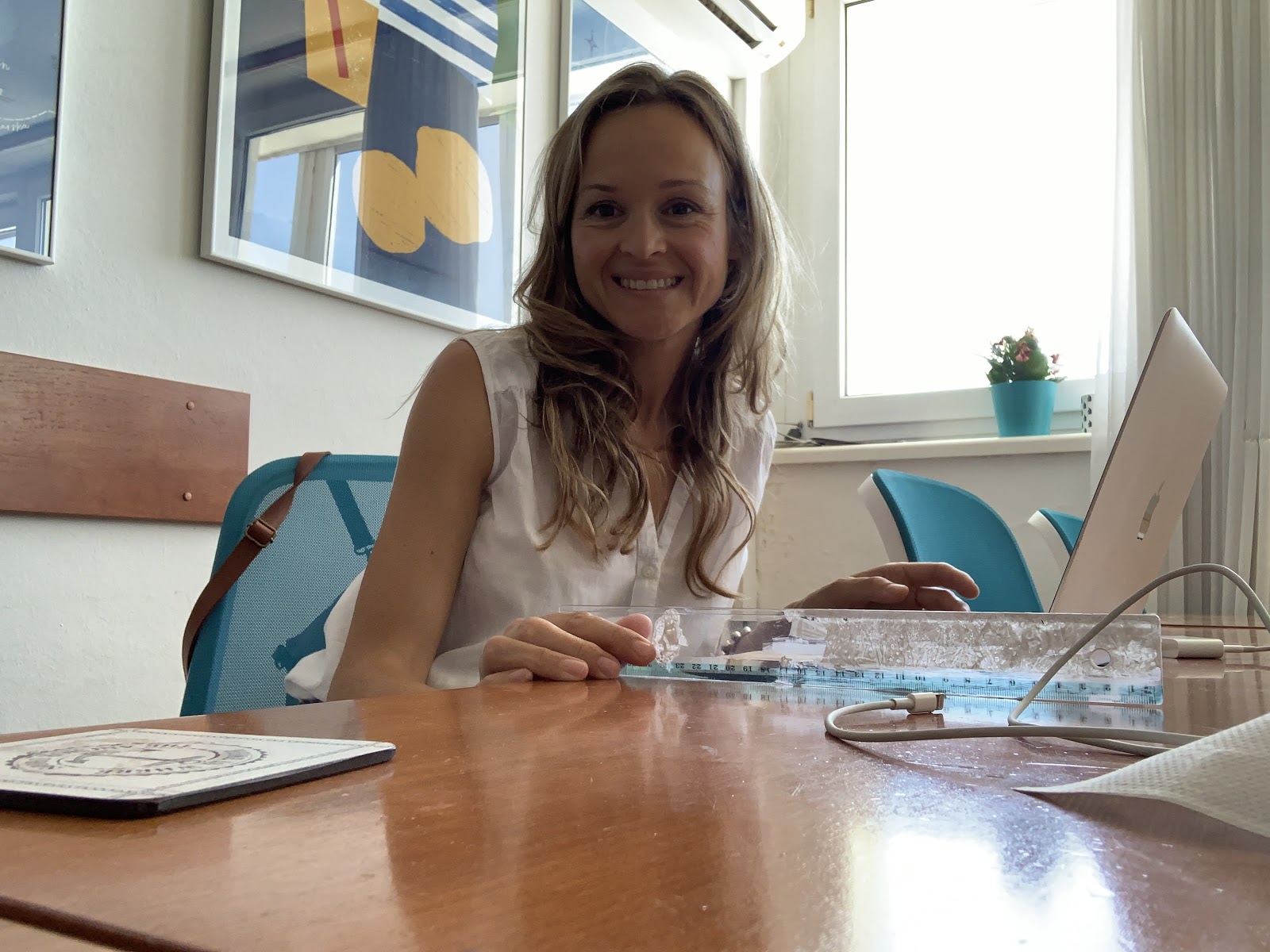
3. What is your impression of the way Croatia is dealing with the crisis? How safe do you feel?
Very safe regarding health matters.
Not so much regarding the coming economic and in turn social implications.
For the social - human responses to fear and lack - and domestic violence - already rampant in any society, is a real concern. I do not feel confident in Croatia in this aspect - policy-wise. Perhaps through EU directives. And of course, some incredible NGOs.
The private sector has really impressed me for standing up and having a unified, strong voice. Based on this instance, I am hopeful there are mega positive changes coming, while also staying realistic. I expect the default Croatian ‘negativity’, ‘favours’ and perception of ‘obstacles’ will prevail.
Even with the new 2 people convening rule, Croatia will remain: “2 people, 3 political parties”. For some time. At least it will be more digital. And this strength will finally be recognised over sun and sea.
4. Now compare that to your home country and how they are handling it. What is Croatia doing better/worse?
It’s difficult to compare, as it’s two very different systems. In some regards, Flintstone vs Jetsons for public services, a culture of calling people out and narratives of the nation. Plus Australia is geographically isolated and Croatia is next to the original European epicentre, Italy. Still, some things stand out.
PANIC BUYING
(I answered this before getting the bonus question).
Australia had a very recent shock to their system - apocalyptic bushfires. This disrupted supply chains and business sectors, particularly tourism. So the panic buying isn’t a total surprise, given the timing.
Croatians (where I am) seem to only have sold out of flour, salt and yeast. Though, I heard the local butcher has now closed. Buying power, ie financial means, is a factor here, too.
In my hometown of Canberra, which is an affluent ‘bubble’, stock in the the fish market was fine, but a lot of other places and shelves were empty.
Overall in Australia I’m happy to read “even the ugly fruit is selling”. Again, hope for better policy and consumer behaviour around local and seasonal supply. Everywhere.
I think food supply is on a lot of people’s minds.
SHUTDOWNS
In Australia, the hospitality sector shutdown and stay home instruction seemed to happen overnight, whereas I felt Croatians saw it coming. I recall knowing a few days ahead cafes, etc would close. This was probably the biggest shock to the system in Australia. Bondi beach on Sunday. Stay home Monday.
Remote work and digital schooling options are also more prolific in Australia. This wasn’t the case in Croatia. Plus there is an over-reliance on tourism here. (Duh).
It’s certainly a wakeup call to diversify in Croatia and make use of competitive advantages among which are the excellent robotics, AI and tech capabilities. Ideal for a newly remote working world.
BUSINESS IMPACT and INFORMATION
There is probably more protection for Australian businesses than here - and business owners aren’t putting all their energies into fighting for their rights on top of re-strategising.
Access to information online is also better in Australia. COVID19 updates have been good in Croatia. For other services, it really shows the system here was not prepared. At all. Phone calls (to unanswered hotlines) and emailing requests is very, very archaic - especially for an EU member state with an international tourist audience.
I sent an email on behalf of someone - and it bounced. The address didn’t even exist. I forwarded it and not even a reply. Pretty sure there are plenty of professional service companies here who could fix this (and build a better solution).
It’s really not acceptable. If this is a sign of things to come, the country will really lag behind.
EMERGENCY RESPONSE
Natural disasters aren’t new to Australia, so there are often emergency rescue measures ready to deploy. From technology, personnel to financial stimuli. I would say they are better organised to react and communicate - but on COVID19, I would say too slow and complacent - initially. This is changing. The gravity of the situation has sunk in. Again, different timelines - even for countries.
For the record, I would feel just as safe health-wise in Australia. Especially my hometown.
OTHER POINTS:
Working from home:
The Australian government saw lockdown coming and bought a lot of laptops. Croatia probably bought more paper and ink.
Social Distancing:
Probably the same response level:

Croatia wins on… Resourcefulness. Australia on Sense of Entitlement.
The resourcefulness and ingenuity of students and sectors here is impressive. Australians - some - bemoan inconveniences and the loss of ‘luxuries’ not available to most people around the world. While winter is the period to watch, I expect countries like Australia to be among the first to bounce back. Croatia, I’m not so sure. And I’m an optimist!
5. What about official communications from the authorities, compared to your home country?
I think the crisis communications here have been delivered as best they can. I know I’m a fan of Vili - and certainly feel better with my health instructions coming from a brain surgeon rather than a career politician. His language is very team-minded. He jokes. He keeps cool.
Australia on the other hand… While the channels are there and resources at hand to deliver them are top notch, there was already a lack of confidence in the guy delivering the message. The mixed-messaging at times also isn’t helpful.
Things feel more settled now, from what I read, and from speaking to people there.
It is a tiring thing to face the public in a crisis, so cutting people slack is also needed. Compassion.
6. What's the one thing you wish you had taken with you into self-isolation.
Am I meant to say more toilet paper…?
My family.
7. One thing you have learned about yourself, and one thing you have learned about others during this crisis.
We either respond with courage and poise or out of fear and lack. Not always immediately, which is human, but it is always our choice. This choice is the one thing we can control.
ABOUT ME:
I’m currently “farm desking” in a Dalmatian village where I see more sheep than people. I’m a dual citizen of Australia and Croatia. This means I have enough toilet paper and alcohol, but now no yeast to make donuts.
As you know, I’m a TCN contributor and collaborator on remote work and digital nomads.
I’m ready for the world to get all medieval again - except with women’s rights this time. And the internet.
I do a few things:
Advocate for remote work and digital nomads.
Communications and international/EU grant programs.
Projects bringing tech into Ag. For growers, supply chains, sustainability, etc.
I have NOT panic-bought 6 months worth of toilet paper.
You can connect with me via LinkedIn or my website tanjapolegubic.com.
Thanks, Tanja, stay safe and see you on the other side.
TCN is starting a new feature series on foreign experiences of sitting out COVID-19 here in Croatia compared to their home country. If you would like to contribute, the questions are below. Please also include a para about yourself and where you are from, and a link to your website if you would like. Please also send 3-4 photos minimum to This email address is being protected from spambots. You need JavaScript enabled to view it. Subject Corona Foreigner
If you would be interested to record a video version for our partners www.rplus.video please let us know in the email. Thanks and stay safe.
Foreigners Self-Isolating in Croatia: Do You Feel Safer Than in Your Home Country?
Firstly, how are you? Are you alone/with someone? Tell us a little about your situation and sanity levels.
What do you think about the economic measures the government is taking, are they helping your business? (PLEASE IGNORE IF THIS DOES NOT AFFECT YOU)
When did you realise that corona was going to be a big issue?
What is your impression of the way Croatia is dealing with the crisis? How safe do you feel?
Now compare that to your home country and how they are handling it. What is Croatia doing better/worse?
What about official communications from the authorities, compared to your home country?
What's the one thing you wish you had taken with you into self-isolation.
One thing you have learned about yourself, and one thing you have learned about others during this crisis.
TCN has recently become a partner in Robert Tomic Zuber's new R+ video channel, initially telling stories about corona experiences. You can see the first TCN contribution from this morning, my video from Jelsa talking about the realities of running a news portal in the corona era below. If you would like to also submit a video interview, please find Robert's guidelines below
VIDEO RECORDING GUIDE
The video footage should be recorded so that the cell phone is turned horizontally (landscape mode).
There are several rules for television and video news:- length is not a virtue- a picture speaks more than a thousand words
In short, this would mean that your story should not last more than 90 seconds and that everything you say in the report should be shown by video (for example, if you talk about empty streets, we should see those empty streets, etc.).
How to do it with your cell phone? First, use a selfie camera to record yourself telling your story for about a minute and a half. Ideally, it would be taken in the exterior, except in situations where you are reporting on things in the interior (quarantine, hospital, self-isolation, etc.). Also, when shooting, move freely, make sure everything is not static.
After you have recorded your report, you should capture footage that will tell your story with a picture, such as an earlier example with empty streets.
One of the basic rules of TV journalism is that the story is told in the same way as a journalist with his text. Therefore, we ask you for additional effort. Because we work in a very specific situation, sometimes you may not be able to capture footage for each sentence of the report. In this case, record the details on the streets: people walking, the main features of the city where you live, inscriptions on the windows related to the virus, etc.
The same rules apply if you are shooting a story from your apartment, self-isolation, quarantine. We also need you to capture footage that describes your story.
When shooting frames to cover your reports, it is important that you change the angle of the shot (in other words, shoot that empty street from several angles). Also, when shooting a detail, count at least five seconds before removing the camera to another detail.
The material should be about 5 minutes long (90 seconds of your report + frames to cover your story).
After recording everything, send us to Zagreb, preferably via WeTransfer to This email address is being protected from spambots. You need JavaScript enabled to view it.


